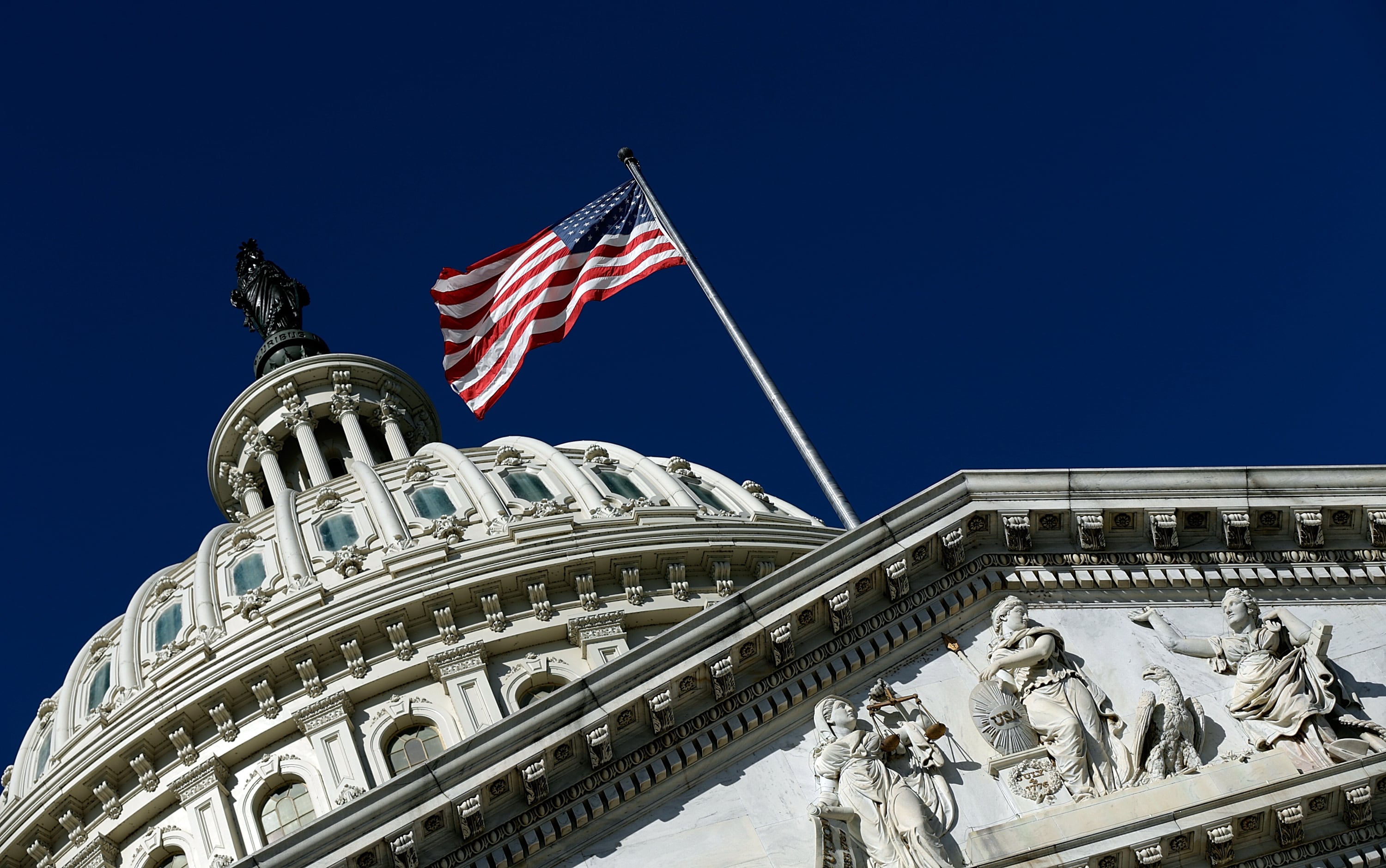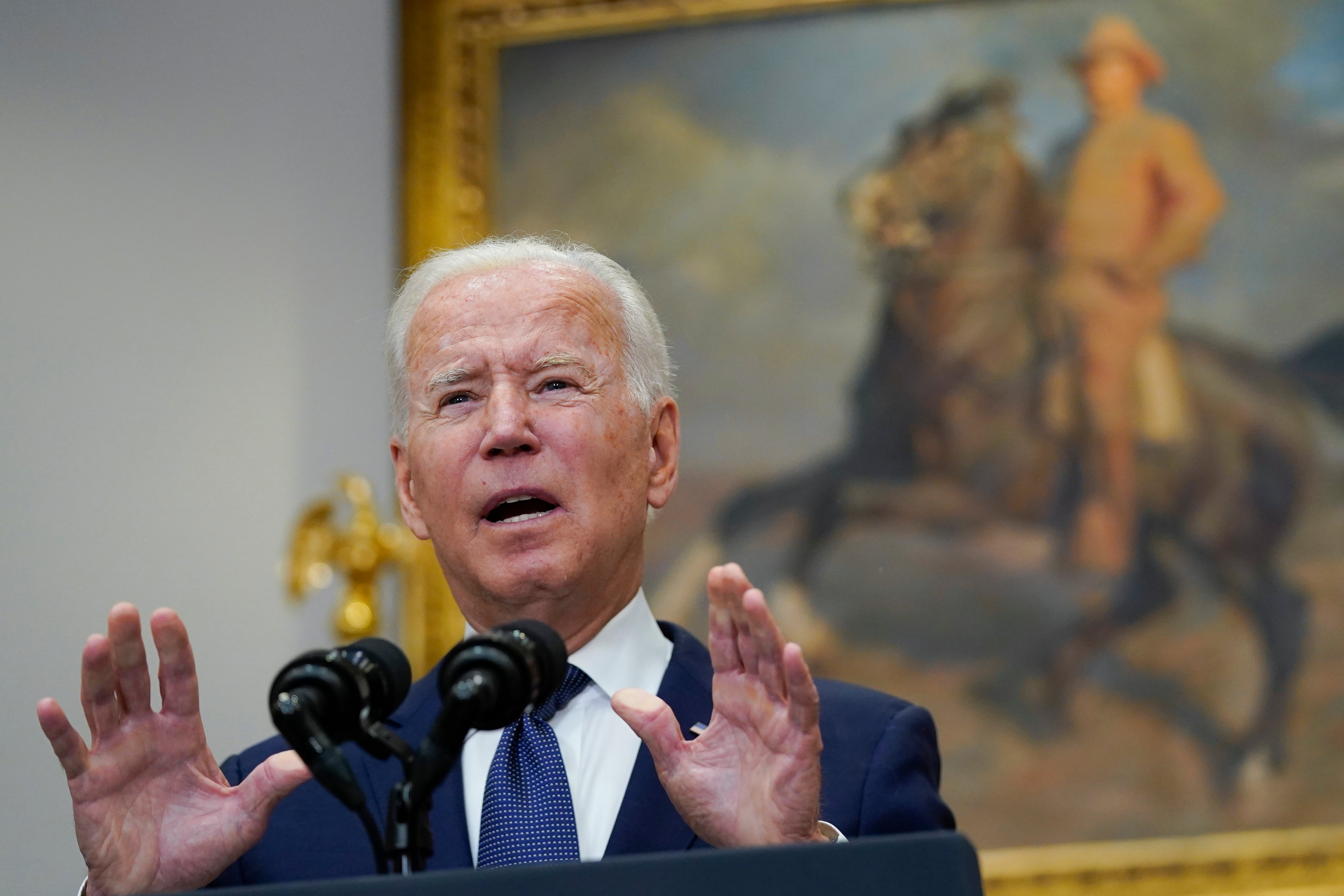WASHINGTON ― The new federal vaccine requirement announced by President Joe Biden has fueled questions from employers, including defense contractors, about how the mandate will work and whether they could lose employees as a result.
To slow the spread of the coronavirus pandemic, Biden announced this month sweeping new orders that require employers with more than 100 workers to mandate vaccinations or offer weekly testing. He also is mandating shots for executive branch workers and federal contractors — with no testing opt-out. The new requirements could cover as many as 100 million Americans.
In public, defense firms have been walking a fine line on the new policy, pledging to continue complying with local, state and federal mandates ― including this one. At the same time, advocates for federal contractors inside and outside the defense industry have expressed concern about what the vaccine will mean for employees. They’re waiting for the government to issue detailed guidance about how it will implement and enforce the sweeping new mandate.
Highlighting the polarization around vaccine mandates, 24 Republican state attorneys general ― some from top states for defense spending, including Texas, Florida and Arizona ― have written to the Biden Administration threatening a lawsuit over vaccine requirements for some employees. Biden, for his part, has brushed aside arguments from Republicans that he’s overreaching and dared them to challenge him.
According to a recent Washington Post/ABC News poll, 52 percent of Americans support businesses requiring employees who come into work to be vaccinated. Roughly seven in 10 unvaccinated workers who are not self-employed say they would likely quit if their employer requires them to be vaccinated and does not grant a medical or religious exemption, according to the same poll.
Some defense contractors are privately voicing concerns their vaccination-averse workers will quit, according to the National Defense Industrial Association’s senior vice president of policy, Wesley Hallman. Even before the pandemic, some manufacturing-heavy defense firms were in heated competition for skilled “metal bending” tradesmen and women with security clearances.
“The bottom line is people are needed to perform on these contracts, and in the current labor market it’s hard to find replacement [workers] with the skills, and often the [security] clearances,” Hallman said, adding that the organization supports vaccine mandates.
“For all of our members and at NDIA headquarters, our position is we want to get through this COVID crisis as quickly and safely as we can and deliver for the warfighter ... but underneath there’s going to be a lot of gray.”
RELATED

David Berteau, the chief executive of the Professional Services Council, which represents more than 400 businesses that provide services to federal agencies, said federal contractor employees, by and large, are already getting vaccinated and will want to comply. The labor market concerns are valid, he said, but they can cut both ways.
“There’s also a part of the workforce that says, ‘I need the workplace to be safe, and the more you vaccinate, the safer it is, the more likely I am to keep working here,’” Berteau said. “That part of the workforce is less vocal, but it’s not less important.”
The Labor Department is expected to issue a fast-track emergency temporary standard that will extend the vaccination mandate to private businesses with 100 or more employees. Enforcement will be in the hands of Labor’s Occupational Safety and Health Administration, which can levy penalties of up to $14,000 per violation.
Biden covered federal contractors and subcontractors with a broad executive order on Sept. 9, giving agencies until Oct. 15 to include the requirement in contract language and until Nov. 22 to have their workers fully vaccinated. Ahead of guidance issued Friday from the government’s Safer Federal Workforce Task Force, the administration has eschewed the typical review and feedback window for less formal conversations with the trade associations.

That guidance, focused on this interim period, encourages agencies to include the vaccination requirement before it becomes required on Oct. 15. Meanwhile, agencies will need to have contractors attest to being vaccinated by a new “certification of vaccination” form or show proof of a negative COVID test within the last three days, unless they are subject to an agency’s regular testing program.
Given that the rules are still being drafted and haven’t been released, experts say the devil will be in the final details. It remains to be seen exactly what the rule will require employers to do or not do, and how it accounts for other rights that unvaccinated employees may assert, such as the right to a health, disability or religious exemption, lawyers say.
Berteau said there are some questions about how it will affect contractors operating on flexible “other transaction authorities” or those with the Federal Aviation Administration, which isn’t covered by federal acquisition regulations.
“From the point of view of bidding and winning contracts, are you going to be on a level playing field? And from the point of view of recruiting and retaining workers, are you going to be competing on a level playing field,” he said. “We think it’s important that there be a level playing field.”
There have been some hints about implementation. A Sept. 9 blog post from White House budget official Jason Miller said the order will apply to employees in locations with individuals working on or in connection with a federal contract or contract-like instrument. It calls for vaccinations, masking and social distancing and that every employer designate a coordinator for safety efforts at ever covered worksite.
While Miller said the goal is to “substantially increase” the number of Americans covered by vaccination requirements, Berteau said he has asked officials to clarify that goal and what the total percentage of vaccinated employees would have to be to relax the mandate.
For the NDIA, whose members include more than 1,000 small business contractors, it’s unclear whether the exception for employers below 100 workers will ultimately apply to government contractors as well. NDIA is voicing concerns to the Biden administration that while large firms might be able to withstand some personnel losses, smaller firms would be hit harder.
“For a small business to lose one or two employees is just about always a strategic impact,” Hallman said. “Looking at this policy, it would have a disproportional effect on small businesses, and we’re concerned about that.”
RELATED

Defense firms, which were granted exemptions from lockdowns at the earliest stages of the pandemic, have been at the forefront in figuring out how to keep the lights on and production on track during COVID flareups. Still, some have been frustrated by the added costs and productivity losses associated with measures they’ve had to take to reduce the spread.
“I suspect companies are happy to see a governmentwide policy that levels the playing field among their competitors,” said former Deputy Undersecretary of Defense for Industrial Policy Bill Greenwalt. “But the no-opt-out for testing for government contractors (if widely applied) opens up a competitive disadvantage for the defense industry that could lead some parts of the workforce to think about looking for jobs away from government contracting where they can get weekly tests or have broader exemptions.”
Yet, employers across the country are bracing for friction and potentially some tough choices, given the controversies surrounding vaccination.
“I know this is going to be a hard and controversial topic for employees and for management of companies ― and there is an option for companies who don’t want to participate in this, and that would be not to enter into any of these [federal] contracts,” said attorney Katie Ervin Carlson, a labor litigation specialist with the law firm Dorsey & Whitney. “I think when the business reality is held up, it’s pretty stark choice, but I think it’s going to be a conversation.”
Tech giant and defense contractor Microsoft announced last month it would require employees to get vaccinated. However, most major pure-play defense firms, prior to Biden’s announcement, only encouraged their employees to get vaccinated and stopped short of mandating it. (On Sept. 16, Raytheon Technologies announced its employees would be required to be vaccinated.)
The chief executive of Huntington Ingalls Industries, Mike Petters, emailed employees after Biden’s announcement to say the company is “still assessing and evaluating the details of this new mandate to determine how we can help our unvaccinated employees meet this requirement as efficiently as possible.
“At HII, doing the hard stuff right means taking deliberate action to ensure the health and safety of the people around us,” Petters wrote in the email. “The most important thing you can do to keep us all safe is to get vaccinated.”
Joe Gould was the senior Pentagon reporter for Defense News, covering the intersection of national security policy, politics and the defense industry. He had previously served as Congress reporter.







